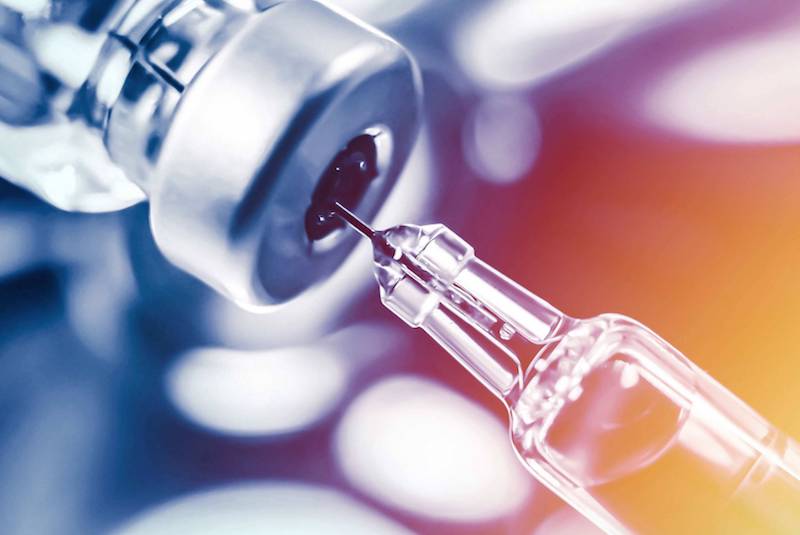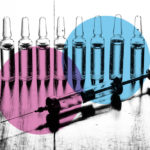Testing the COVID-19 vaccines in kids: Is it safe?

The drug company Pfizer recently announced they had opened their clinical trial of the COVID-19 vaccine to teens as young as 16. And as vaccine trials move into phase 3 testing, it’s likely that other drug companies will follow suit.
This news may leave parents wondering about the safety of vaccine trials on teens and children, and what this means for developing a COVID-19 vaccine. For answers, we turned to Dr. Kristin Moffitt, an infectious disease specialist at Boston Children’s Hospital.
Is it safe to test the COVID-19 vaccine on children and teens?
It’s going to be very important to have safety data for COVID-19 vaccines in children as vaccines become licensed for use. But since we know this infection is relatively mild in young people, they really need to make sure the safety of these vaccines is well established in adults first. The results of phase 1 and 2 trials of several vaccines administered to thousands of adults demonstrate these vaccines are safe and well-tolerated in adults. This suggests these same vaccines could begin being safely tested in children ages 12 and older.
Why is it important to test the vaccine in both adults and children?
It should not be assumed a new vaccine tested in adults will generate the same immune response in children without also testing it in children. Also, different vaccine doses are sometimes needed to achieve a similar safety profile and immune response in children as in adults.
Could children have a serious reaction to the vaccine?
The risk of a child having serious adverse reaction shortly after getting immunized is probably minimal, based on safety data from adults. Clinical trials in children will provide more information about their potential risk.
However, the vaccine could cause a harmful immune response in the face of infection. It will be important to evaluate for that possibility in the phase 3 trials in adults, and then to follow with further clinical trials in children and teens.
Understanding the different phases of vaccine clinical trials
Phase 1 clinical trials assess the safety of the vaccine. This phase usually includes about 20-100 healthy volunteers. The study helps determine the effects of different doses of vaccines on humans and the side effects it may cause.
Phase 2 studies test vaccine safety and immune responses in more varied populations. This phase involves up to several hundred patients.
Phase 3 studies typically involve thousands of patients. This testing, which can last several years, provides more information about the drug’s effectiveness and possible adverse reactions. In this phase, the efficacy of the vaccine is evaluated by comparing the rates of infection in the vaccinated group compared to “control” group that receives a placebo. In most phase 3 studies, neither the researchers nor the patients know who has received vaccine or placebo, making it a “blinded study.”
The Centers for Disease Control and Prevention (CDC) has more information about how vaccines are approved for use in children.
Why is it important to vaccinate kids, when most have mild symptoms?
Although most children have mild symptoms, we know they can infect adults in their families, as well as outside the home. Some of these adults may be at high risk of serious complications from COVID-19. From what we understand so far, it seems that older children are spreading the virus more easily than younger children. So it makes sense to move towards immunizing the population of these children who may be contributing most to transmission. Furthermore, although infrequent, some children do get very sick from COVID-19, and prevention of serious illness in children is an important goal of vaccination.
Even if they test in children and teens, will adults still get the COVID-19 vaccine first?
Yes, it seems like the target population for the earliest rounds of vaccines would be adults at higher risk for disease, the elderly, and frontline health care workers. How vaccines are distributed to both adults and children will be based on many factors, including the timing of successful vaccine trial completion and vaccine production capability. In Massachusetts, an interim COVID-19 Vaccination Plan, was released in October that details their plan.
Read more about Boston Children’s response to COVID-19.
Related Posts :
-

Does your child need a flu shot? Yes, especially this year.
Have you and your children received your flu shots yet? If not, it’s important to get them as ...
-

Getting to a COVID-19 vaccine as fast and as safely as possible
The novel coronavirus is not expected to disappear anytime soon. With physical distancing, virus testing, contact tracing, and potentially new ...
-

Why do some children exposed to the coronavirus go on to develop MIS-C?
Most children exposed to the SARS-CoV-2 coronavirus have few or no symptoms. But a small number become sick enough to ...
-

Study highlights the severity of acute necrotizing encephalopathy in kids with the flu
For most children, influenza (flu) usually means unpleasant symptoms like a fever, sore throat, and achy muscles. But for a ...





